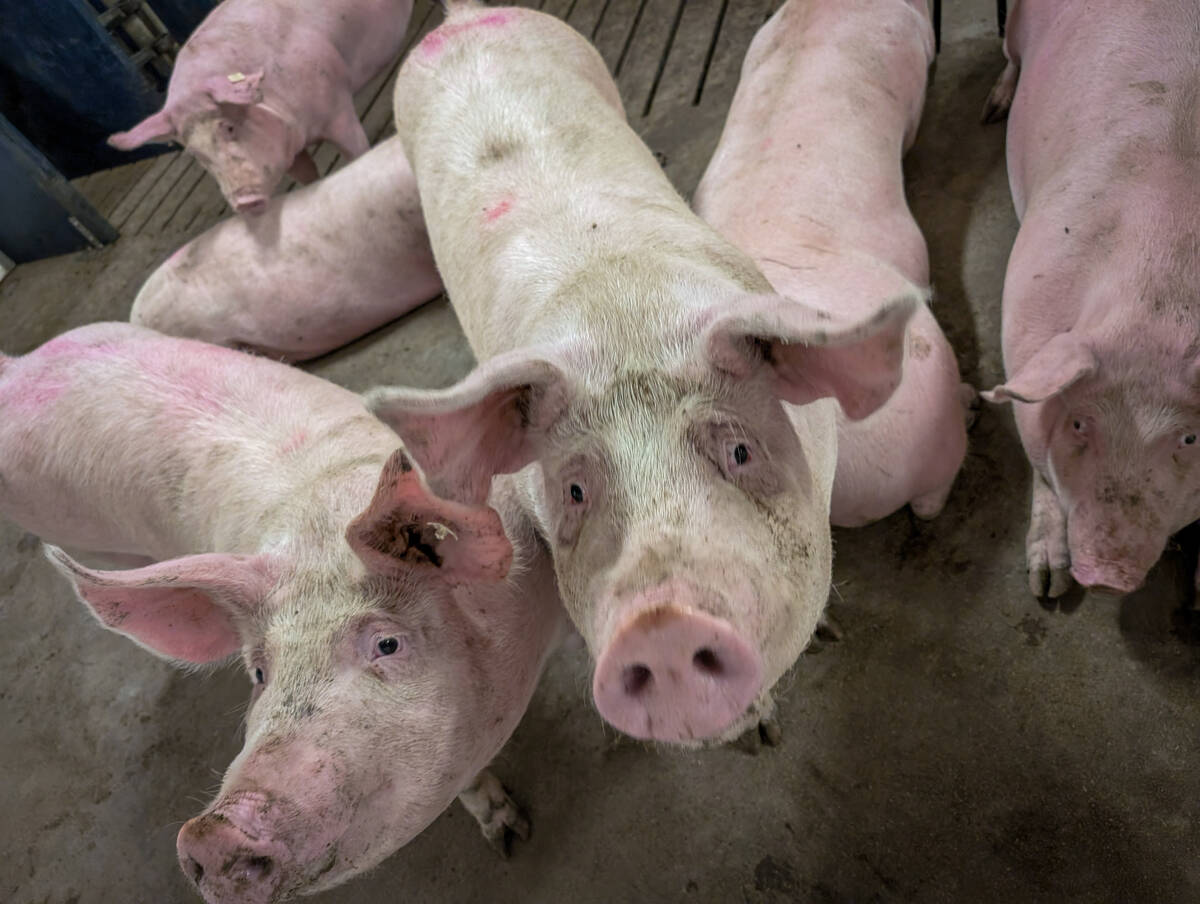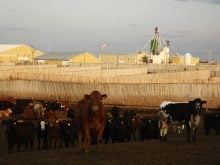RED DEER – A new vaccine has been registered for an intestinal disease that infects North American hogs.
Found in at least 75 percent of Canadian herds, ileitis is a serious diarrheal disease that affects hogs’ digestion and weight gain.
A 1997 survey in the United States found the disease in 96 percent of 196 herds, including high-health groups. The disease is equally serious in Europe.
Economic impact for the U.S. is estimated at $98 million US per year and $6 million US in the United Kingdom.
“All herds, breeds and management systems seem to show up with the disease at some point or other,” said swine veterinarian Brendan
Read Also

Pork sector targets sustainability
Manitoba Pork has a new guiding document, entitled Building a Sustainable Future, outlining its sustainability goals for the years to come.
O’Connor, who explained the new vaccine to farmers and veterinarians at a recent meeting in Red Deer.
Enterisol ileitis, developed by Boehringer Ingelheim only for hogs, has been approved for use in the U.S. for two years.
Demand was so great that the manufacturer could not meet orders quickly enough, which slowed its introduction to Canada. About 30 million American pigs have received the vaccine, which is delivered through their drinking water.
The disease, also called porcine proliferative enteropathy, is caused by the bacteria Lawsonia intracellularis.
It’s not known where the disease originates or how it is transmitted.
“It’s a fecal oral infection, but where it originally came from, we don’t know,” said Boehringer vet Ernie Sanford in an interview.
It occurs in many species, including foxes, wild boar, rodents, ratites, lambs, dogs and horses, particularly foals.
The disease has probably existed for years but went unnoticed until about 10 years ago.
Strict biosecurity on farms may have worsened the situation.
“We know … our three site production systems (have) caused a spike,” Sanford said.
“The spike in the actual clinical problems are occurring in the late finishers,” which is when the disease is most costly in terms of feed, medication and loss of the market hog.
Herds traditionally receive antibiotics through the feed supply, but growing public concern over antibiotic use in food animals has prompted researchers to look for alternatives. In addition, antibiotics treat the symptoms but do not build disease immunity.
The disease appears in three forms: chronic, acute and subclinical.
The bacteria live within the intestinal cells and form lesions in the gut. Infected pigs have difficulty properly digesting amino acids.
In its chronic form, animals experience loss of appetite, scours and poor average daily gain for a total weight loss of 18 to 60 kilograms.
Undigested feed may appear in the manure that looks like loose cow patties.
The disease can result in unevenly sized hogs as their feed intake declines. Acute cases in adult pigs can cause severe bloody diarrhea and sudden death. The pigs may look pale and anemic.
Subclinical forms of the disease are hard to diagnose, but may be responsible for poor weight gains in a herd.
“You’ll see increased numbers of small pigs in a group,” said swine veterinarian Steve McOrist.
Research has found that cases of ileitis are low when the breeding herd is kept clean. Piglets that benefit from mother’s antibodies delivered in colostrum appear healthy, but the disease may be delayed until later in life.
“Delay in infection may set them up for the acute form of the disease,” McOrist said.
Acute forms seem to be increasing in Canada. Timing is everything in treating the disease and the vaccine needs about three weeks to build immunity.
“Vaccination in the face of an outbreak is not an option,” said veterinarian John Kolb.
The live vaccine is stored in temperatures below Ð70 C and cannot be refrozen once thawed. All medications, disinfectants and sanitizers such as chlorination must be cleaned from water pipes 72 hours before the vaccine is delivered. Chlorine deactivates the vaccine.
It cannot be used in pregnant sows, breeding boars or pigs under three weeks old.
It is sold only through vets and has a 21-day withdrawal period.















